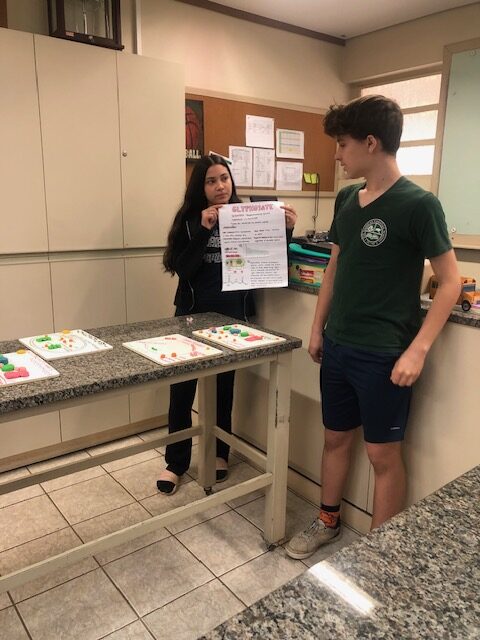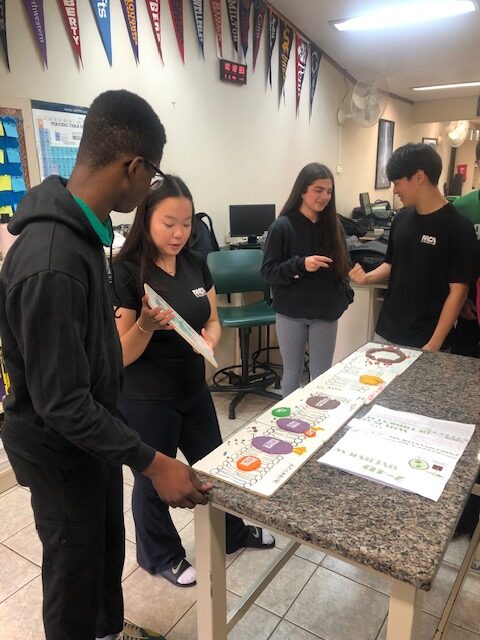Caption: Humphrey Agcaoili is the Biology teacher for the high school level class. [by Dr. Cristina Meier]
by Isabella Bruniera
This year’s AP Biology class began with a record enrollment. Out of 27 currently enrolled students, 17 of them chose to take AP Biology over the high school level class.
AP Biology and high school Biology provide different academic experiences for high school students. While both courses teach the fundamentals of biological science, they differ significantly in terms of depth, speed, and objectives.
According to the College Board website, their description of the course reads that the “AP Biology explores the key principles of biology. While you learn about genetics and how it affects evolution, how energy flows through ecosystems and other fascinating topics, you’ll also learn how to think critically, solve problems, and communicate scientific ideas effectively.”
Students in AP Biology delve deeper into complicated biological concepts than regular Biology. It goes deeper into complex topics such as molecular processes, evolution, genetics, and ecology. It is similar to a higher education beginning biology course, because it is designed to be a university level class for high school students. Students in AP Biology are frequently asked to study data, understand scientific conclusions, and learn techniques.



High school Biology, on the other hand, focuses on providing an overview of these topics while focusing on fundamental data that is useful for general understanding. In the American curriculum, the study of biology is the second level of science that follows the completion of physical science that normally takes place in ninth grade.
After students complete Biology, they are ready to move on to the next two levels of science provided in high school; which are Chemistry and Physics. Therefore, Biology does provide the level of understanding of science that students need to earn all their high school science credits. At PACA, grade 10 students are given the choice between taking the high school level class or the advanced placement (AP) level.
Both AP Biology and high school Biology give students a good foundation in the biological sciences. However, AP Biology is better suited for those seeking a challenge and are interested in the possibility of earning college credit. High school Biology, on the other hand, provides a comprehensive introduction to the topic, making it an excellent choice for students who want a more balanced rate.
For students taking AP Biology, they are given additional class time to process all the instructional time and laboratory requirements for the class. Instead of meeting for one period a day, they also have an additional period added to their first semester schedule.
In the current schedule, students meet twice for AP Biology each school day. They meet for AP Biology lab during 3rd period and then for their class time during 6th period.
“My favorite thing about AP Bio is that I learn how to be more dedicated,’’ said Eva Castro.
According to Luke Meier, his favorite thing about taking AP Biology are the labs that are included in the AP Biology class.
“I like experimenting on stuff and doing the dry labs,” said Meier.
His advice to this year’s ninth grade students who are considering their choice for next year is positive.
“Definitely do it, even though there is a lot of busy work and it’s pretty intense,” said Meier, “It will help you in the long run. If you like to study plants and life science, it’s pretty cool.”
Every student who takes the AP Biology class will also take the College Board AP Biology test during the first week of May in order to receive an evaluation marked separately from their class grade. This score ranges from 1-5 and can be submitted with college and university applications when students are in 12th grade.














